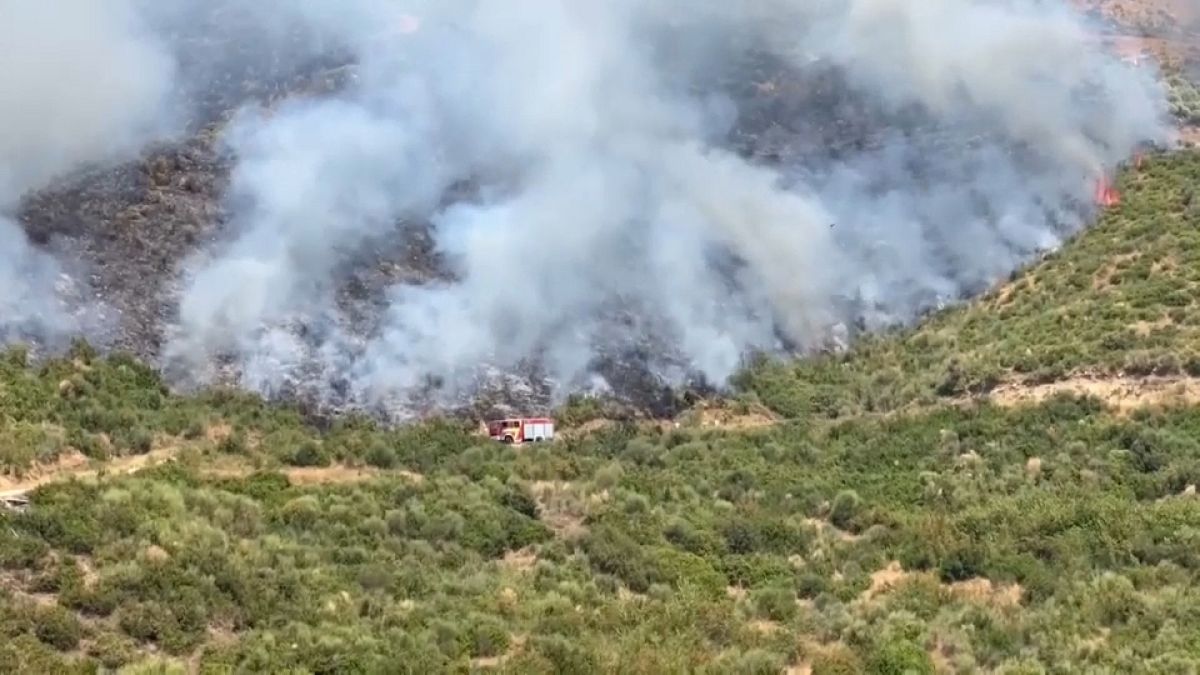Three armed forces helicopters were deployed to control a blaze in Bosnia, while additional choppers from Serbia were expected to arrive soon. The wildfires in Bosnia’s Sutjeska National Park have spread, putting the centuries-old coniferous forest at risk. The fire has already destroyed around 150 hectares of forest and pasture, posing a serious threat to the ecological balance of the area. The challenging terrain, with steep canyons causing burning trees to reignite, has made it difficult for firefighters to contain the blaze. Despite the efforts of three helicopters and assistance from Serbia, the situation remains critical.
Meanwhile, wildfires in Albania’s Mali i Thatë or Dry Mountains have been burning for a week, threatening remote mountainous areas. Firefighting teams in Albania have been using helicopters and water hoses to try to contain the flames. The Defence Ministry reported that the fires in the Dry Mountains, along the eastern border with North Macedonia, have been particularly challenging to extinguish. The continued high temperatures in Europe have exacerbated wildfire conditions, with Italy, Greece, and parts of Albania and North Macedonia experiencing severe wildfires this summer.
The wildfires in Bosnia and Albania have highlighted the urgent need for international cooperation to combat the increasing threat of wildfires caused by climate change. The impact of these fires extends beyond environmental damage, posing risks to public safety and infrastructure in affected areas. The devastating effects of wildfires on forests and wildlife emphasize the importance of proactive measures to prevent and mitigate such disasters. The efforts of firefighters and authorities in Bosnia and Albania are commendable, but the scale of the fires underscores the need for a coordinated response at the regional and international levels.
As wildfires continue to ravage forests and natural landscapes in Europe, the need for sustainable land management practices becomes more apparent. Climate change is exacerbating the frequency and intensity of wildfires, making it crucial for countries to adopt measures to prevent and control such disasters. The destruction of ancient forests and biodiversity due to wildfires underscores the urgency of addressing climate change and its impact on ecosystems. International collaboration and support are essential in managing the growing threat of wildfires and ensuring the preservation of vital natural resources.
The wildfires in Bosnia and Albania serve as a stark reminder of the devastating consequences of climate change and the urgent need for collective action to address the root causes of such disasters. The impact of wildfires on communities, wildlife, and ecosystems underscores the interconnectedness of environmental issues and the importance of sustainable development. By promoting eco-friendly practices, investing in renewable energy sources, and adopting climate-resilient strategies, countries can mitigate the risks posed by wildfires and contribute to a more sustainable future. The recent wildfires in Europe should serve as a wake-up call for policymakers, governments, and individuals to take immediate action to protect the planet and combat the growing threat of climate change.











